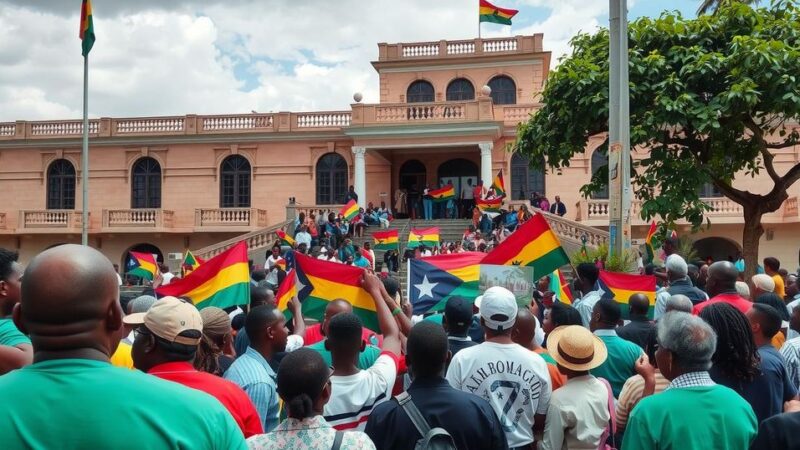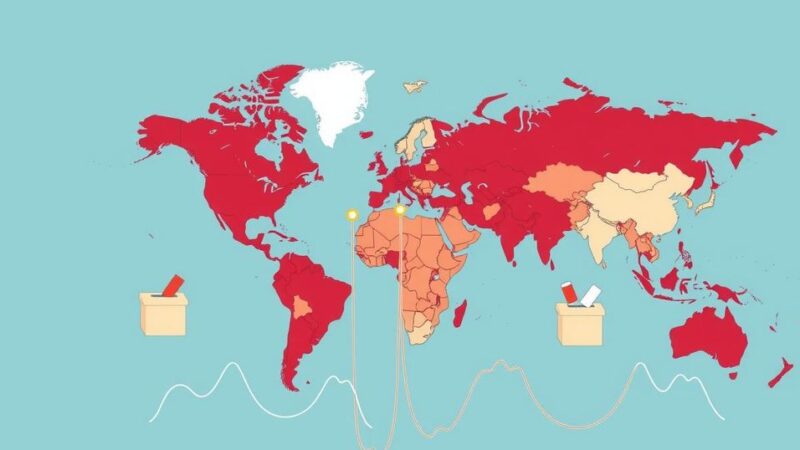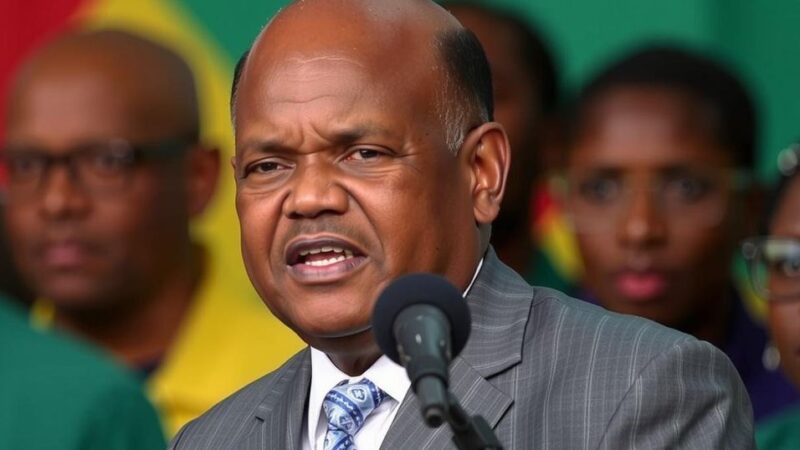The Colorado Senate race in Western Slope could grant significant power to the Democrats, enabling supermajorities not seen in 90 years. Republican Marc Catlin faces Democrat Cole Buerger in a tightly contested election. A win for Buerger could allow sweeping reforms, while a Catlin victory would sustain Republican resistance. Voter demographics and campaign issues, including affordability and water policy, will be pivotal in determining the election’s outcome on November 5.
A crucial election for the Colorado Senate seat in the Western Slope region could yield significant ramifications for the Democratic Party, granting them unprecedented legislative power not seen in nearly a century. The race this November is between Republican Marc Catlin, a state representative from Montrose, and Democrat Cole Buerger, a business owner from Glenwood Springs. The outcome could either uphold Republican resistance against the Democratic majority in the state legislature or bestow Democrats with supermajorities in both legislative chambers, a feat that would allow substantial reforms in state policies, including tax, electoral, and criminal justice systems. If the Democrats achieve a two-thirds majority, it would empower them to bypass vetoes by Governor Jared Polis, thus amplifying their influence on state governance. However, achieving such majorities is not guaranteed, and the pivotal race in Senate District 5 is seen as the key to this goal. Though Democrats believe they have favorable prospects in various districts, Senate District 5 presents a more ambiguous scenario, particularly as the district’s political landscape has shifted since the last election cycle due to redistricting in 2021. In this expansive district, comprising several counties, unaffiliated voters hold a significant presence, making up 50% of the electorate. Registered Republicans account for 28%, while Democrats constitute 20%. As local elections have shown fluctuating support for both parties, understanding voter sentiment, especially in historically competitive Garfield County, will be essential. The two candidates’ campaigns have centered on critical issues such as affordability and water policy, highlighting differing backgrounds and political experience. While Catlin touts his experience and bipartisan approach, Buerger emphasizes a fresh perspective and range of local concerns. Both candidates have garnered similar financial support for their campaigns amid a backdrop of evolving Republican party dynamics, which may impact Catlin’s support in this competitive landscape. The election, scheduled for November 5, embodies a high-stakes political contest with potential long-term implications for Colorado’s governance.
In Colorado, a legislative battle is emerging this November as candidates vie for a Senate seat in the Western Slope area, an expansive district pivotal to the Democratic Party’s aspirations for greater legislative power. With the potential for acquiring supermajorities in both the House and Senate, a win for the Democrats could catalyze meaningful changes in state governance, particularly regarding contentious issues such as tax reform, election alteration, and criminal justice policies. The election becomes particularly significant as historical precedents indicate a shift in power dynamics over the last 90 years, along with the recent redistricting efforts that have redefined the political landscape. As both parties mobilize resources and strategize campaigning, understanding the complexities of voter demographics, including the influence of unaffiliated voters, becomes critical in determining the outcome of the race. Candidates Catlin and Buerger present stark contrasts in their political ideologies and campaign priorities, shaping voter perceptions in a district where independence in political affiliations is increasingly valuable. This scenario underscores the importance of local issues, candidate experience, and party loyalty in an election that could redefine Colorado’s political landscape for years to come.
The upcoming election for Senate District 5 in Colorado represents a significant juncture for the state’s political future, particularly concerning the potential shift in legislative power towards the Democrats. A victory for Cole Buerger could pave the way for substantial reforms and supermajorities, challenging the prevailing Republican influence. Conversely, a win for Marc Catlin would reinforce existing barriers for the Democrats. With shifting voter demographics and increasing competition within the district, the outcome of this election will be critical not only for the candidates involved but for the political trajectory of Colorado as a whole. As voters prepare to cast their ballots on November 5, the implications of their decisions will resonate far beyond the immediate races, impacting governance and policy for generations to come.
Original Source: www.postindependent.com






